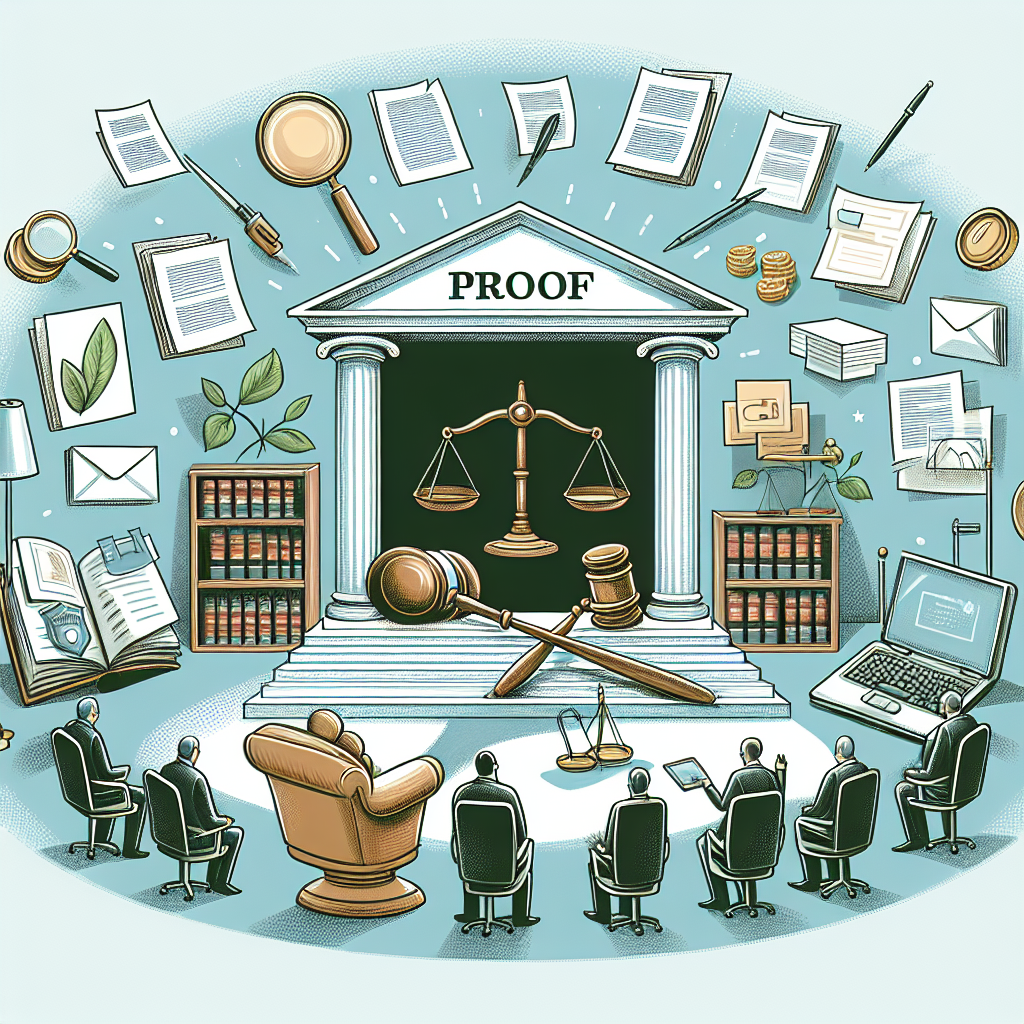Evidence in Civil Procedural Law
In the field of Civil Procedural Law, evidence plays a fundamental role in the resolution of legal conflicts. Evidence is the element that allows the parties to prove the facts they allege in a judicial process, and is decisive for the judge to be able to issue a fair and equitable sentence.
Types of evidence in civil procedural law
There are various types of evidence in Civil Procedural Law, among the most common are:
Testimonial
Testimonial evidence consists of the testimony of persons who have witnessed or have direct knowledge of the facts in dispute. Witnesses must appear before the judge to declare under oath the truth of what they know.
Documentary
Documentary evidence refers to the presentation of documents such as contracts, invoices, emails, among others, that support the arguments of the parties in the judicial process.
Expert
Expert evidence is that which is carried out through the intervention of experts in the subject matter of the debate. These experts issue a technical report that serves to clarify technical or scientific aspects that are not generally known.
Judicial inspection
A judicial inspection consists of the judge going to the scene of the events to directly verify certain circumstances related to the case in question. This test is very useful in cases where it is necessary to verify the reality of the facts in situ.
Assumptions
Presumptions are indications or elements that, without being directly proven, allow the judge to infer the existence of a fact or circumstance. These presumptions may be legal or judicial, and have an important weight in the judge's assessment of the evidence.
Interrogation of parties
Cross-examination is a type of test in which the parties to the case directly question their opponents in order to obtain information relevant to their defense. This type of test allows the parties to compare their versions and arguments.
Judicial recognition
Judicial recognition is a test in which the judge orders the parties to do certain things to verify the truth of their claims. For example, the judge may order a plaintiff to produce a particular asset that is the subject of a dispute.
Technological media
Nowadays, technological means such as audio recordings, videos, or emails can also be used as evidence in a judicial process. These means are increasingly common in forensic practice and allow for greater objectivity in the evaluation of evidence.
Evaluation of the test
Once the evidence has been presented in a judicial process, the judge must proceed to evaluate it in an objective and reasoned manner. The evaluation of the evidence consists of analyzing the credibility, consistency and relevance of each piece of evidence, in order to determine the truth of the facts alleged by the parties.
It is important that the judge sufficiently and clearly motivates his decision regarding the assessment of the evidence, since the justice and equity of the sentence handed down in the process will depend on it.
Conclusion
In conclusion, evidence in Civil Procedural Law is a fundamental element for the resolution of legal conflicts. The practice of evidence allows the parties to demonstrate the alleged facts, and the judge to obtain the necessary elements to issue a fair and equitable sentence.
For this reason, it is essential to have lawyers specialized in handling evidence in the civil field, such as Eva Alcalá Salmerón, an expert in Civil Procedural Law in Granada. Her experience and knowledge in the field guarantee adequate handling of evidence in judicial proceedings, thus ensuring the effective defense of her clients' rights.



